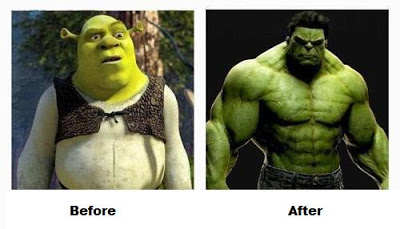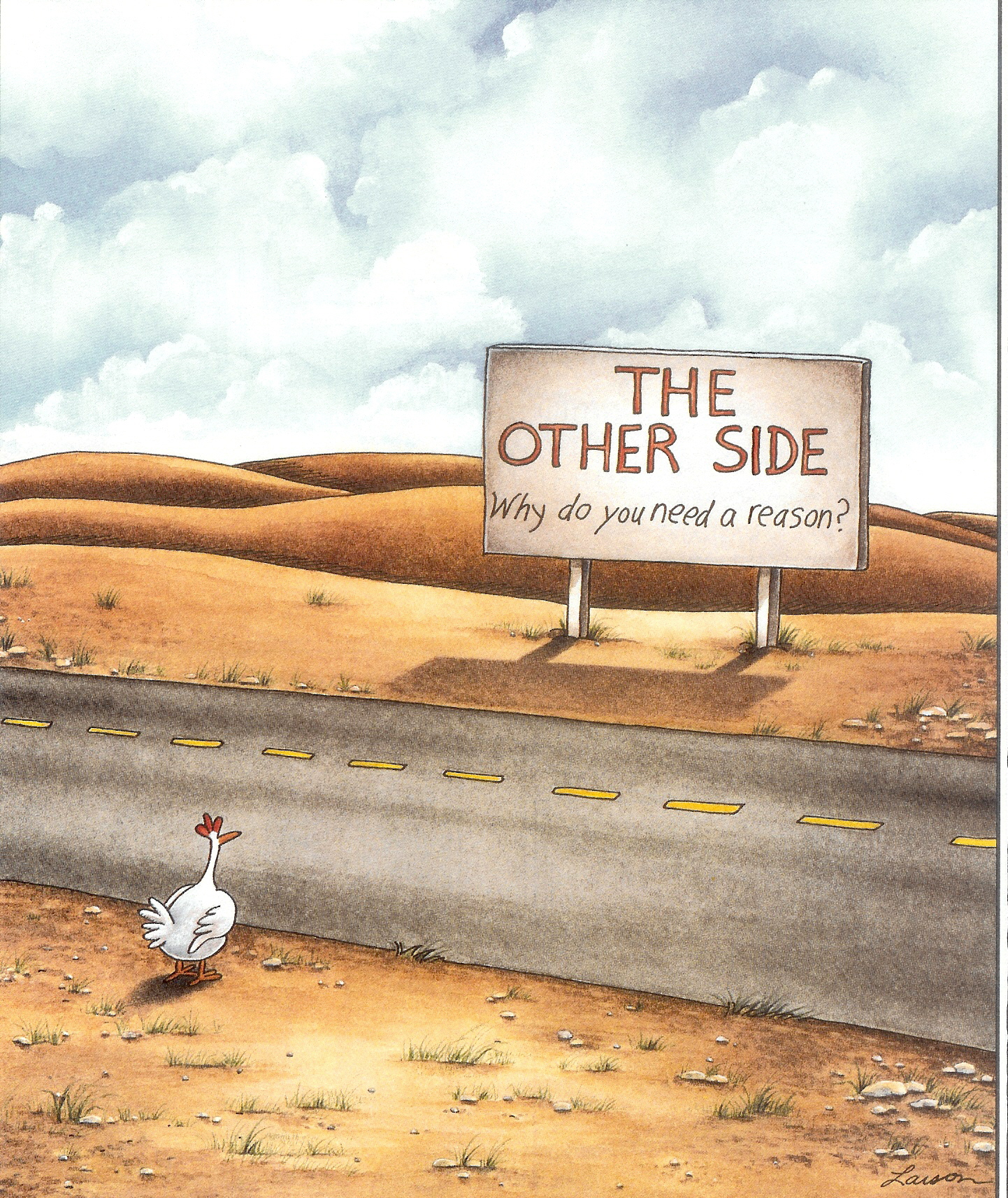MOAR PROTEIN??
 I saw this abstract in my Facebook feed, and when I saw, “randomized controlled trial” in the title, I knew I had to read it because good randomized controlled trials in fitness and nutrition are hard to come by. Let’s say that I was pleasantly surprised and excited by this one; and truthfully, that doesn’t happen that often.
I saw this abstract in my Facebook feed, and when I saw, “randomized controlled trial” in the title, I knew I had to read it because good randomized controlled trials in fitness and nutrition are hard to come by. Let’s say that I was pleasantly surprised and excited by this one; and truthfully, that doesn’t happen that often.
Before we talk about the study, I think it’s important to differentiate between “high-protein” diets and “low-something else” diets. “High protein” means that the first maconutrient of importance is protein and when figuring how much carb and fat to eat, the calories not taken up by protein are then taken up by the other two macronutrients. “Low something-else” means that the first macronutrient taken into consideration is the “something else” (these days it’s usually carbohydrate), and then the rest is available for fat and protein. This doesn’t mean that a low-carb diet is automatically a “high protein” one, or, more importantly, that a “high protein” diet is automatically a low-carb one. Read More...
Pride
 This weekend marks the anniversary of the Stonewall Riots in New York City in 1969, when gay men and women in the Stonewall Inn on Christopher Street rioted against the police who made regular raids on the bar. This sparked a multi-day marching demonstration against the oppression of gay people in America and is the reason why the Pride Parade takes place every year, despite the gross commercialization of the event today.
This weekend marks the anniversary of the Stonewall Riots in New York City in 1969, when gay men and women in the Stonewall Inn on Christopher Street rioted against the police who made regular raids on the bar. This sparked a multi-day marching demonstration against the oppression of gay people in America and is the reason why the Pride Parade takes place every year, despite the gross commercialization of the event today.
Me, I’m a “late gay”. I didn’t come out until my late twenties. But more to the point, I don’t derive a lot of fun from going to mainstream clubs–gay or straight. When I looked at the schedule for Pride weekend in NYC, I had the options of a club, another club, a rooftop club, a pool party club, a club party on Governor’s island, a club part on the Chelsea piers, the Parade and more clubs. The word “club” has now stopped looking like the word “club”. So, despite wanting to celebrate what I consider to be an important anniversary of the civil movement of MY time, I really didn’t think I had a lot of options. This got me to thinking about what Pride means to me. Read More...
Holy hell balls, only 2 weeks of class on obesity? (Or, why I really shouldn’t read stuff on Huffpost)
 Medical school is full of stuff to learn. A lot of stuff. Every day is a new day of a massive volume of information. It’s like trying to take a sip from a fire hose. Residency is even more. The AMA has voted to classify obesity as a disease. An interesting move, for sure, that will ignite debate and discussion for years to come.
Medical school is full of stuff to learn. A lot of stuff. Every day is a new day of a massive volume of information. It’s like trying to take a sip from a fire hose. Residency is even more. The AMA has voted to classify obesity as a disease. An interesting move, for sure, that will ignite debate and discussion for years to come.
This has triggered a bunch of blog posts from a variety of parties who ask the obvious question: how can doctors who receive less than 2 weeks of class on obesity be adequately prepared to treat it? Read More...
When is a calorie not a calorie? To get to the other side (Yup, just another bad joke.)
This one gets bandied around a lot: “A calorie isn’t a calorie.” It’s a clever gimmicky catch-phrase because it a) challenges the reader to re-evaluate what they think is a set-in-stone rule and b) gives them the hope that the reason why they’re not making progress lies in the fact that their “truth” is in fact a lie. Read More...
“Every little bit doesn’t really count”–The MUCH longer version
 I wrote an article for Fitocracy a few months ago titled, “Every little bit doesn’t really count.” When I write for my own blog, I don’t pay attention (much) to length. But when writing for someone else’s audience, I tend to think that most people won’t tolerate my typical length. Most of my blog posts are quite long in comparison to a lot of fitness bloggers, or even science bloggers. However, a lot of comments I got back from the Fitocracy piece suggested to me that 1) Readers will tolerate longer posts and 2) In my attempt to keep things short, I missed the boat in adequately delivering my message. Here’s the longer version. I’m not entirely convinced it’s much better than a short version or that it will piss less people off, but pushing the “Publish” button is, in the balance, probably better than sitting on the article.
I wrote an article for Fitocracy a few months ago titled, “Every little bit doesn’t really count.” When I write for my own blog, I don’t pay attention (much) to length. But when writing for someone else’s audience, I tend to think that most people won’t tolerate my typical length. Most of my blog posts are quite long in comparison to a lot of fitness bloggers, or even science bloggers. However, a lot of comments I got back from the Fitocracy piece suggested to me that 1) Readers will tolerate longer posts and 2) In my attempt to keep things short, I missed the boat in adequately delivering my message. Here’s the longer version. I’m not entirely convinced it’s much better than a short version or that it will piss less people off, but pushing the “Publish” button is, in the balance, probably better than sitting on the article.
My thoughts on the “every little bit counts” mindset remain basically unchanged. There were lots of comments about busy lives and raising children, as well as taking stairs and parking farther. I’ve written about goal-setting before, but this issue is slightly different. Winning your personal war involves multiple steps, and you can lose the war in any of these places by allowing yourself to believe that every little bit counts. Read More...
The State of Evidence-Based Fitness
I wanted to start my new site with a new post, but as with everything on this site, I get most of my blogging ideas from other people. I got the idea to write this entry from The Oatmeal’s “State of the Web”. Unfortunately, I have the drawing ability of Matthew Inman’s dog (this is debateable as I’m just surmising that his dog can’t draw very well). So you just get text with no nifty comic. 🙁 Read More...
30 seconds of idiocy. The cure for cancer is delayed by decades.

There was a really interesting letter in the journal Nature on Thursday, “Australia’s grant system wastes time,” which was about how much time goes into preparing a grant for funding with Australia’s National Health and Medical Research Council (in Canada, this would be the Canadian Institutes for Health Research, and in the US, the National Institutes of Health). The authors of the letter did a survey of Australian researchers and found that it took, on average, 38 working days to prepare a new proposal. They extrapolated their survey data to estimate how much cumulative time was spent by Australian researchers who applied to the NHMRC preparing grants, and estimated thatn 550 working years of research time was spent on this endeavour. As with all federal funding agencies, only a small percentage of grant proposals get funding. In 2012, that was 20.5% in Australia. So, basically, about four centuries of cumulative research time was wasted, with no return on the time spent. The point of the letter was to encourage the NHMRC to simplify the application process to decrease the time wasted.
But there’s another insidious drain on research that goes unrecognized and I think really has manifested itself only in the past 10-ish years with the explosion of self-help publishing as well as the widespread adoption of social media that permits easy viral sharing of ideas; and that is the constant distraction of sensationalism. Read More...
Hey, ass-hat with the abstract link. Yeah. You.
[Edit: More than a few readers gave me feedback about my use of a derivative of the r-word, which has gone from a medical term still used in medical journals to a pejorative one when used in a derisive context. A small portion of my patients are developmentally delayed and understanding the power of language (being more than moderately opposed to, “That’s so gay,” referring to anything more offensive than a bus of drag-nuns–which really isn’t offensive at all since the Sisters are AWESOME (honestly, I’ve been to their parties); so I guess”gay”=”awesome”), I’ve replaced it with “Ass-hat”. I have Googled its etymology and can find no reason not to use it. Now, onto the post.]
The rate at which psuedo-information flies around has now reached epic proportions. And not in a good way. Read More...
To anyone that says, "A randomized controlled trial in nutrition is impossible!" I can now say, "You just don’t want it badly enough."
 Should you go on the Mediterranean diet?
Should you go on the Mediterranean diet?As you are already probably aware, the Mediterranean diet is one of the diets that started it all. Its rules are relatively simple: lots of olive oil, lots of fruits and nuts, lots of vegetables and cereals, and some fish and chicken, and not a lot of dairy, red meat, processed meats, and sweets and some wine (And while Greece is part of Mediterranean, Greek yoghurt does not seem to feature prominently in this diet–so think on that a bit…)
The Mediterranean diet has been studied a lot. One could argue that of all the diets that have gone though fad phases, including the Atkin’s diet, the Mediterranean diet has been studied the most. In particular, its effects on preventing cardiovascular events (stroke, heart attacks and death from either) has been of particular interest. There have been major cohort studies, but never a randomized controlled trial. Read More...
How statistics can protect your willpower

Today is Valentine’s Day (Happy Valentine’s/Bitter Single’s Day!). So I thought I’d give my post a brain-washing theme (cynical much? 🙂 )
With the advent of Instagram, Facebook, Twitter and now, Vine, the power of the testimonial has never been greater. It’s easy to be bombarded by images of amazing before and after, and even “now” photos of clients of trainers and nutritionists, all trying to cajole their way into your mind and ultimately into your wallet. Googling the terms “fitness”, “marketing” and “testimonial” returns over 100,000 hits, the first few pages of which are testimonials on how testimonials can help grow a fitness business. How’s that for meta? Read More...

